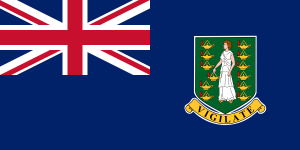Language/Virgin-islands-creole-english/Grammar/Questions
Hi Virgin Islands Creole English learners! 😊
In today's lesson, we will be discussing how to ask questions in Virgin Islands Creole English. Asking questions is an important part of communication, and it is essential to understand the rules of grammar when forming questions in any language.
Word Order
The word order for asking questions in Virgin Islands Creole English is different from that of English. In Virgin Islands Creole English, the verb comes first, followed by the subject, and then the object. For example:
- Kan yo komèt? (Can you commit?)
- Ki sa ou vle? (What do you want?)
Auxiliary Verbs
Auxiliary verbs are used to form questions in Virgin Islands Creole English. The most common auxiliary verbs are kan, ki, and konbyen.
- Kan yo komèt? (Can you commit?)
- Ki sa ou vle? (What do you want?)
- Konbyen laj ou genyen? (How old are you?)
Negation
Negation is used to form negative questions in Virgin Islands Creole English. To form a negative question, the auxiliary verb is preceded by the word pa. For example:
- Pa kan yo komèt? (Can't you commit?)
- Pa ki sa ou vle? (What don't you want?)
- Pa konbyen laj ou genyen? (How old aren't you?)
Intonation
Intonation is an important part of asking questions in Virgin Islands Creole English. The intonation of a question should rise at the end, indicating that it is a question. For example:
- Kan yo komèt? (Can you commit?)
- Ki sa ou vle? (What do you want?)
- Konbyen laj ou genyen? (How old are you?)
If you have any questions, please ask them in the comments section below.
Feel free to edit this wiki page if you think it can be improved. 😎

